Indoor air pollutants can have a significant impact on our health, but with the help of humidifiers and air purifiers, we can create a cleaner and healthier home environment. Humidifiers increase the moisture in the air, improving respiratory health and addressing issues like dry skin and nasal passages. Air purifiers, on the other hand, effectively filter out contaminants such as dust, pollen, and pet dander, reducing allergy and asthma symptoms. By understanding the benefits of these clean air solutions, we can take proactive steps to remove indoor pollutants and improve indoor air quality.
Table of Contents
Key Takeaways:
- Humidifiers increase moisture in the air, improving respiratory health and alleviating issues like dry skin and nasal passages.
- Air purifiers filter out contaminants such as dust, pollen, and pet dander, reducing allergy and asthma symptoms.
- Both humidifiers and air purifiers play a vital role in combatting indoor pollutants and improving indoor air quality.
- Consider your specific needs when choosing between a humidifier and an air purifier, or use both together for optimal results.
- A diffuser is a better option for improving indoor air smell, as it disperses scented vapor into the air.
Understanding Indoor Pollutants and Their Effects
Indoor pollutants such as dust, pollen, pet dander, and smoke can have a detrimental impact on our respiratory health and overall well-being. These common pollutants can trigger allergies, worsen asthma symptoms, and contribute to respiratory infections. It is crucial to be aware of these indoor contaminants and take effective measures to reduce their presence in our homes.
To combat indoor pollutants, it is important to understand their effects on our health. Dust and pollen can cause allergic reactions, leading to symptoms like sneezing, coughing, and itchy eyes. Pet dander, especially from cats and dogs, is a common allergen that can worsen asthma symptoms. Smoke from cigarette smoke or cooking can irritate the respiratory system and even increase the risk of respiratory illnesses.
The presence of these pollutants can significantly impact our indoor air quality. Poor indoor air quality can lead to a range of health issues, including respiratory problems, fatigue, headaches, and allergies. It is essential to address these concerns and implement effective strategies for allergen control and pollutant removal.
Creating a Healthy Indoor Environment
To create a healthier indoor environment, consider using tools like air purifiers and humidifiers. An air purifier filters the air and helps remove pollutants such as dust, pollen, pet dander, and smoke, improving indoor air quality. Humidifiers, on the other hand, add moisture to the air, reducing dryness and relieving symptoms like dry skin and nasal passages.
It is important to note that while both air purifiers and humidifiers can be effective in improving indoor air quality, they serve different purposes. Air purifiers focus on removing particles and contaminants from the air, while humidifiers address issues related to dryness. Depending on your specific needs, you may choose to use one or both of these devices to optimize your indoor air quality and maintain a healthy living space.
In conclusion, understanding indoor pollutants and their effects is crucial in maintaining good indoor air quality and promoting respiratory health. By addressing allergens and removing pollutants, such as dust, pollen, pet dander, and smoke, we can create a healthier and more comfortable living environment for ourselves and our loved ones.
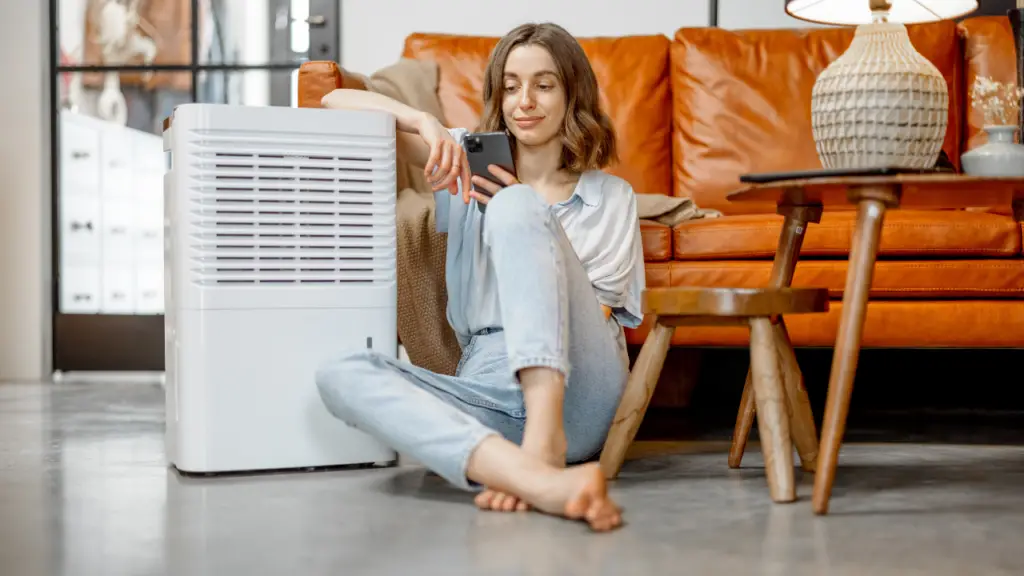
The Role of Humidifiers: Improving Air Quality and Health
Humidifiers play a crucial role in improving indoor air quality and promoting better respiratory health by adding much-needed moisture to the air. They are effective tools for combating indoor pollutants and maintaining a comfortable living environment. By increasing the humidity levels in your home, humidifiers can alleviate dryness-related issues, such as dry skin, dry nasal passages, and static electricity.
According to a study published in the Journal of Allergy and Clinical Immunology, maintaining adequate indoor humidity levels can help reduce the spread of airborne viruses and decrease the survival rates of flu viruses. This is particularly important during the winter months when the air tends to be drier. Using a humidifier can help create an inhospitable environment for these viruses, reducing the risk of respiratory infections.
It’s essential to choose a quality humidifier and use it correctly to avoid any negative impact on air quality. Regularly clean and maintain your humidifier to prevent the growth of mold and bacteria. Use distilled or demineralized water instead of tap water to minimize the release of minerals into the air. Additionally, keep an eye on the humidity levels in your home and aim for a range of 40-50% to maintain optimal comfort and respiratory health.
While humidifiers are effective in adding moisture to the air and improving air quality, they do not clean the air like air purifiers do. Air purifiers are specifically designed to filter and remove particles, allergens, and other contaminants from the air, resulting in cleaner and healthier indoor air. However, when used together, humidifiers and air purifiers can provide the best of both worlds, optimizing both air humidity and air purification.
| Humidifiers | Air Purifiers |
|---|---|
| • Add moisture to the air | • Filter and remove particles, allergens, and pollutants |
| • Alleviate dryness-related issues | • Improve indoor air quality |
| • Reduce the spread of airborne viruses | • Reduce allergy and asthma symptoms |
In conclusion, humidifiers are essential for improving indoor air quality and promoting better respiratory health by adding moisture to the air. They can alleviate dryness-related issues and reduce the spread of airborne viruses. However, when it comes to removing particles and pollutants from the air, air purifiers are more effective. Using both a humidifier and an air purifier together can provide optimal results, ensuring clean and moisturized indoor air for you and your family.
Choosing the Right Humidifier for Your Needs
When choosing a humidifier, it’s important to consider your specific needs to ensure optimal indoor air quality and respiratory health. There are several factors to consider, including room size, desired humidity levels, and maintenance requirements.
If you have a small bedroom or office, a tabletop humidifier may be sufficient. These compact units are portable and easy to use. However, for larger spaces like living rooms or open-concept areas, a console or whole-house humidifier may be more suitable. These units have a larger water tank capacity and can humidify larger areas effectively.
| Humidifier Type | Room Size |
|---|---|
| Tabletop | Small to medium-sized rooms |
| Console | Large rooms or open-concept areas |
| Whole-house | Entire home |
Another consideration is the desired humidity levels. Some humidifiers offer adjustable humidity settings, allowing you to customize the moisture level in your indoor environment. If you live in a dry climate or struggle with dry skin or nasal passages, a humidifier with adjustable settings can be beneficial.
Lastly, maintenance requirements should also be taken into account. It’s essential to clean and maintain your humidifier regularly to prevent the growth of mold or bacteria. Some humidifiers require more frequent cleaning and filter replacements than others. Be sure to read the manufacturer’s instructions and choose a humidifier that fits your maintenance preferences and schedule.
Proper Usage and Maintenance of Humidifiers
Using and maintaining humidifiers correctly is crucial for ensuring clean air solutions and promoting optimal respiratory health. Humidifiers are effective tools for increasing moisture in the air, which can alleviate dryness-related issues like dry skin, dry nasal passages, and static electricity. However, if not used and maintained properly, humidifiers can potentially introduce or worsen indoor air quality problems.
Here are some important tips for proper usage and maintenance of humidifiers:
- Choose the right humidifier: Consider factors like room size and desired humidity levels when selecting a humidifier. There are different types of humidifiers available, such as evaporative, ultrasonic, and steam humidifiers. Each type has its own advantages and maintenance requirements, so choose one that suits your needs.
- Keep humidity levels in check: Aim for a relative humidity level of around 30-50% in your home. This range helps maintain comfortable indoor air without creating conditions favorable to mold and bacteria growth. Use a hygrometer to measure humidity levels and adjust your humidifier accordingly.
- Clean and disinfect regularly: Regular cleaning and disinfection are essential to prevent the growth of mold, bacteria, and other microorganisms in the humidifier. Follow the manufacturer’s instructions for cleaning and disinfecting, and make sure to empty and dry the reservoir when the humidifier is not in use.
- Use distilled or demineralized water: Tap water often contains minerals that can build up in the humidifier, leading to white dust or scale. To prevent this, use distilled or demineralized water in your humidifier. It not only helps maintain better indoor air quality but also prolongs the lifespan of the humidifier.
- Replace filters as recommended: Some humidifiers have filters that need to be replaced periodically. Follow the manufacturer’s guidelines for filter replacement to ensure optimal performance of your humidifier.
By following these tips, you can maximize the benefits of using a humidifier while minimizing potential risks to your indoor air quality. Remember that proper usage and maintenance are key to ensuring clean air solutions and promoting respiratory health in your home.
| Benefits of Proper Humidifier Usage and Maintenance | Tips for Proper Humidifier Usage and Maintenance |
|---|---|
| – Alleviates dry skin, dry nasal passages, and static electricity | – Choose the right humidifier for your needs |
| – Reduces the spread of airborne illnesses | – Keep humidity levels in check |
| – Helps eliminate dust particles from the air | – Clean and disinfect regularly |
| – Improves overall indoor air quality | – Use distilled or demineralized water |
| – Replace filters as recommended |
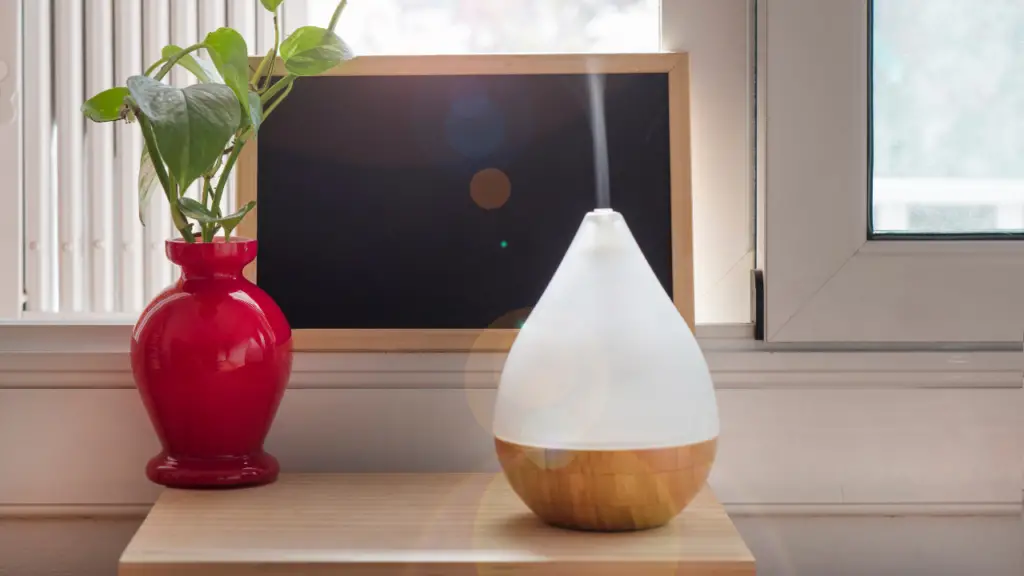
Understanding Air Purifiers: Filtering Out Indoor Pollutants
Air purifiers play a vital role in removing indoor pollutants and enhancing indoor air quality, making them an excellent defense against respiratory issues and allergies. These devices are designed to filter out and capture particles and contaminants, such as dust, pollen, pet dander, and smoke, that can negatively impact our health when present in the air we breathe.
By utilizing advanced filtration technologies, air purifiers effectively capture airborne particles and pollutants, preventing them from circulating in our living spaces. Some models employ HEPA filters, which are capable of removing even the tiniest particles, as small as 0.3 microns in size, with an efficiency rate of 99.97%. This ensures that the air we breathe is clean and free from harmful pollutants.
In addition to removing allergens and irritants, air purifiers can also help eliminate odors from cooking, pets, and other sources. This is particularly beneficial for individuals with sensitivities to certain smells or for those who simply want to enjoy a fresh and clean-smelling indoor environment.
To maximize the benefits of an air purifier, it’s important to select the right model for your specific needs. Consider factors such as room size, the type of pollutants you want to remove, noise level preferences, and energy efficiency ratings. Taking these factors into account will ensure that you choose an air purifier that meets your requirements and provides optimal performance.
| Benefits of Air Purifiers | Considerations When Choosing an Air Purifier |
|---|---|
|
|
In conclusion, air purifiers are valuable tools for improving indoor air quality and defending against respiratory issues and allergies. By effectively filtering out indoor pollutants, these devices create a healthier and more comfortable environment for us to live in. By choosing the right air purifier and using it consistently, we can breathe easier and enjoy the benefits of clean and pure air in our homes.
Selecting the Right Air Purifier for Your Home
Selecting the appropriate air purifier for your home is essential to effectively tackle indoor air pollutants and ensure a cleaner living environment. With so many options available on the market, it can be overwhelming to find the best fit for your specific needs. Here are some key factors to consider when choosing an air purifier:
- Filtration System: Look for air purifiers with high-efficiency particulate air (HEPA) filters, as these are proven to effectively remove airborne particles, including dust, pollen, pet dander, and other allergens. HEPA filters have a minimum efficiency of 99.97% in capturing particles as small as 0.3 microns.
- Noise Level: Consider the noise level of the air purifier, especially if you plan to use it in your bedroom or office. Look for models that offer multiple fan speeds, allowing you to adjust the noise level according to your preference.
- Room Size: Determine the square footage of the room where you intend to use the air purifier. Different models are designed to handle different room sizes, so be sure to choose one that is effective for your space.
- Energy Efficiency: Look for energy-efficient air purifiers that are certified by organizations like ENERGY STAR. These models consume less electricity, helping you save on energy costs while still maintaining excellent air purification performance.
Once you have considered these factors, it’s also important to compare prices and read reviews from reputable sources to ensure you are getting a high-quality air purifier. Remember that regular filter replacement is crucial for optimal performance, so check the cost and availability of replacement filters before making your final decision.
Comparison of Top Air Purifier Brands
| Brand | Filtration System | Noise Level | Room Size Coverage | Energy Efficiency | Price Range |
|---|---|---|---|---|---|
| CHIVALZ | HEPA + Carbon Filter | Low | Up to 300 sq. ft. | ENERGY STAR Certified | $99.99 |
| LEVOIT | HEPA + Activated Carbon + UV-C | Medium | Up to 500 sq. ft. | Not ENERGY STAR Certified | $139.99 |
| HATHASPACE | HEPA + Ionizer + UV-C | High | Up to 800 sq. ft. | ENERGY STAR Certified | $300 – $400 |
Keep in mind that each brand and model may offer additional features and benefits. Take your time to assess your specific requirements and compare different options before making your final decision. By selecting the right air purifier, you can create a healthier and cleaner living space for you and your family.
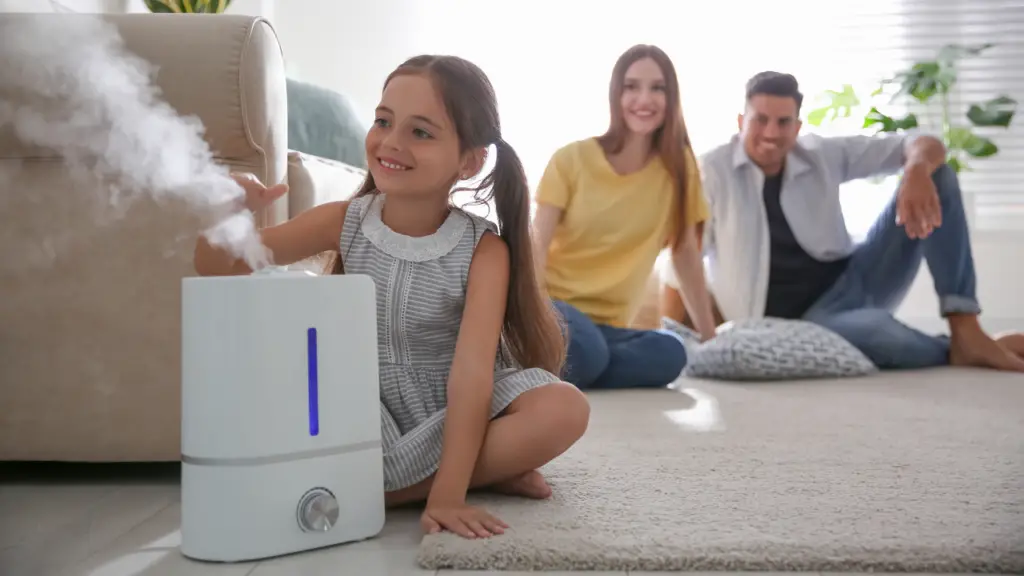
Combining Humidifiers and Air Purifiers: The Best of Both Worlds
In certain situations, combining the power of both humidifiers and air purifiers can provide the ultimate defense against indoor pollutants, leading to cleaner air and improved well-being. While humidifiers and air purifiers have their unique benefits, using them together can create a more comprehensive approach to tackling indoor air quality issues.
Humidifiers are effective at increasing the moisture in the air, which can alleviate dryness-related problems like dry skin and nasal passages. They can also help reduce the spread of airborne illnesses. On the other hand, air purifiers are designed to filter and remove particles and contaminants from the air, such as dust, pollen, pet dander, and smoke. By combining the two, you can address both the dryness and the pollutants present in your indoor environment.
To fully utilize the benefits of both devices, it’s important to choose the right products for your needs. Look for a high-quality humidifier that allows you to control the humidity levels and has a built-in hygrometer to monitor the moisture in the air. Pair it with an air purifier that has a HEPA filter or an activated carbon filter for effective pollutant removal. By selecting the right combination, you can create a healthier and cleaner indoor environment.
Proper placement of the devices is also crucial. It is recommended to place the humidifier and air purifier in separate areas of the room to maximize their coverage. Placing the air purifier near the source of pollutants, such as a pet’s bed or a smoking area, can help capture and remove the contaminants more efficiently. By strategically positioning the devices, you can achieve optimal results.
In summary, while humidifiers and air purifiers have distinct functions, using them together can create a synergistic effect in improving indoor air quality. By increasing the moisture in the air and removing pollutants simultaneously, you can create a more comfortable and healthier living environment. Consider combining the power of both humidifiers and air purifiers to experience the best of both worlds and enjoy the benefits of clean, fresh air.
| Humidifiers | Air Purifiers |
|---|---|
| Increases moisture in the air | Filters and removes particles and contaminants |
| Alleviates dryness-related issues | Improves indoor air quality |
| Reduces the spread of airborne illnesses | Reduces allergy and asthma symptoms |
Addressing Other Air Quality Concerns: Odor Control
While humidifiers and air purifiers primarily target indoor pollutants, incorporating solutions like diffusers can also help with odor control, enhancing the overall indoor air quality. Diffusers are devices that vaporize essential oils or fragrances, dispersing a scented vapor into the air and creating a pleasant aroma. They can be a great addition to your clean air solutions, offering both aesthetic and functional benefits.
The use of diffusers not only masks unpleasant odors but also helps to eliminate them by neutralizing odor-causing molecules in the air. Essential oils like lavender, eucalyptus, and citrus can effectively freshen up your indoor environment and create a more inviting atmosphere. Additionally, certain essential oils have antimicrobial properties that can help reduce the presence of bacteria or other microorganisms in the air.
When choosing a diffuser, it’s important to consider factors such as room size and preferred scent intensity. Some diffusers offer adjustable mist settings, allowing you to control the strength of the fragrance. It’s also essential to use high-quality essential oils to ensure safety and effectiveness. Always follow the manufacturer’s instructions for proper usage and maintenance of your diffuser.
| Benefits of Using Diffusers | Considerations when using Diffusers |
|---|---|
|
|
By incorporating diffusers into your indoor air quality routine, you can effectively address odor concerns and create a more pleasant and inviting living space. Alongside humidifiers and air purifiers, diffusers offer another layer of clean air solutions, ensuring a healthier and fresher environment for you and your family to enjoy.
Making the Choice: Humidifier or Air Purifier?
Choosing between a humidifier and an air purifier depends on your specific needs and goals for addressing indoor pollutants, and allergens, and improving overall air quality. Both humidifiers and air purifiers have their unique benefits and are effective in different ways.
If your primary concern is maintaining proper humidity levels and alleviating dryness-related issues, a humidifier is the best choice. Humidifiers increase the moisture in the air, which can help with conditions such as dry skin, dry nasal passages, and static electricity. They can also reduce the spread of airborne illnesses, like the flu. However, it is crucial to choose a quality humidifier and use it correctly to avoid increasing the concentration of particulate matter in the air.
On the other hand, if you are more focused on improving indoor air quality and reducing allergens, an air purifier is the way to go. Air purifiers are designed to filter and remove particles and contaminants from the air. They can effectively eliminate pollutants like dust, pollen, pet dander, and smoke, improving overall air quality and reducing allergy and asthma symptoms.
While humidifiers do not clean the air like air purifiers do, they can still have a positive impact on eliminating dust particles from the air. By increasing the moisture in the air, humidifiers can cause airborne dust particles to become too heavy to stay suspended, causing them to fall to the ground. Additionally, if you are looking to improve the scent of your indoor air, a diffuser is a better option than a humidifier. Diffusers vaporize essential oils or fragrances, dispersing scented vapor into the air and creating a pleasant aroma.
In some cases, using both an air purifier and a humidifier together can provide the best results, improving both air quality and humidity levels in your home. This combination can be especially beneficial for individuals with respiratory conditions or those living in areas with high levels of pollution or dry climates. It’s important to assess your specific needs and consider factors like room size, desired humidity levels, and pollutant removal requirements when deciding which option or combination is right for you.
| Humidifier | Air Purifier | Humidifier + Air Purifier | |
|---|---|---|---|
| Primary Purpose | Add moisture to the air | Filter and remove particles and contaminants from the air | Improve air quality and add moisture to the air |
| Main Benefits | Alleviates dryness-related issues, reduces airborne illnesses | Improves indoor air quality, reduces allergens | Combines benefits of both options, improves air quality and humidity levels |
| Considerations | Choose a quality humidifier and use it correctly to avoid increasing particulate matter concentration | Choose an air purifier suitable for your specific needs and room size | Assess the specific needs of your space and desired outcomes |
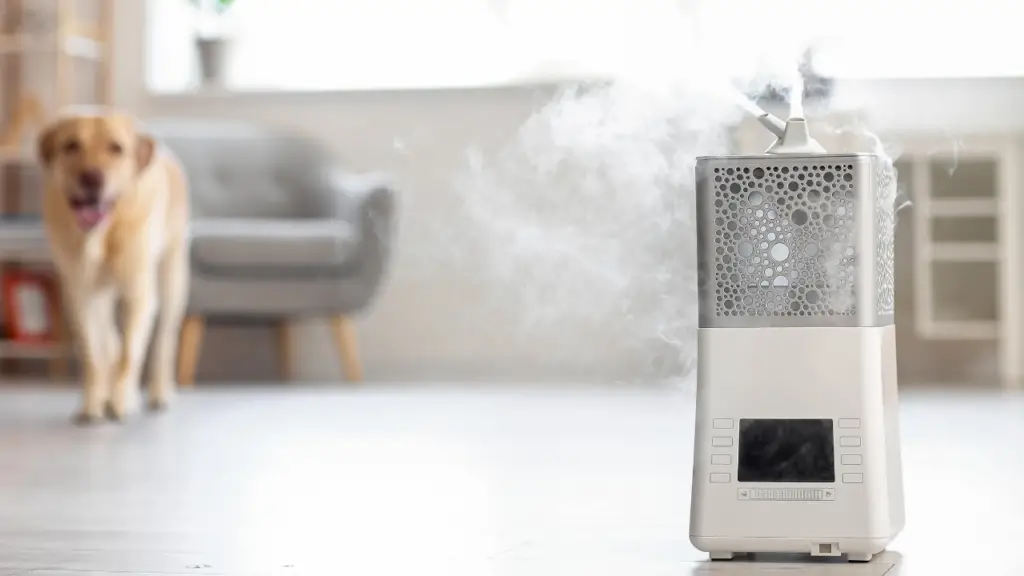
Conclusion
With their ability to combat indoor pollutants and improve overall air quality, humidifiers, and air purifiers serve as essential tools for creating a healthier and cleaner home environment.
Humidifiers increase the moisture in the air, alleviating issues like dry skin, dry nasal passages, and static electricity. They can also help reduce the spread of airborne illnesses. However, it’s important to choose a quality humidifier and use it correctly to avoid increasing the concentration of particulate matter in the air.
Air purifiers, on the other hand, are designed to filter and remove particles and contaminants from the air. They effectively remove pollutants such as dust, pollen, pet dander, and smoke, improving indoor air quality and reducing allergy and asthma symptoms.
While humidifiers do not clean the air like air purifiers, they can still have a positive impact on eliminating dust particles from the air. By increasing the moisture in the air, humidifiers can cause airborne dust particles to become too heavy to stay suspended, causing them to fall to the ground.
When it comes to improving the smell of indoor air, diffusers are a better option than humidifiers. Diffusers vaporize essential oils or fragrances, dispersing a scented vapor into the air and creating a pleasant aroma.
When deciding between a humidifier and an air purifier, consider your specific needs. Air purifiers are best for addressing poor indoor air quality and removing contaminants, while humidifiers are ideal for adding moisture to the air and alleviating dryness-related issues. In some cases, using both an air purifier and a humidifier together can provide the best results, improving both air quality and humidity levels in your home.
FAQ
Q: Are humidifiers effective at cleaning the air?
A: Humidifiers increase moisture in the air, which can cause airborne dust particles to become heavier and fall to the ground. However, they do not clean the air like air purifiers do.
Q: Do air purifiers remove odors?
A: Air purifiers are primarily designed to filter out particles and contaminants from the air, but they can also help reduce odors by removing the airborne particles that cause them.
Q: Can I use a diffuser instead of a humidifier?
A: Diffusers vaporize essential oils or fragrances, creating a pleasant aroma in the air. While they can help with the smell, they do not add moisture to the air like humidifiers do.
Q: Can I use both a humidifier and an air purifier together?
A: Yes, using both a humidifier and an air purifier can provide the best results in improving both air quality and humidity levels in your home.
Q: How do I choose the right humidifier for my needs?
A: When choosing a humidifier, consider factors such as room size, desired humidity levels, and maintenance requirements.
Q: How do I properly use and maintain a humidifier?
A: It’s important to follow the manufacturer’s instructions for using and maintaining your humidifier to avoid any negative impact on air quality. This may include regular cleaning, using distilled water, and monitoring humidity levels.
Q: How do air purifiers improve indoor air quality?
A: Air purifiers filter and remove particles and contaminants from the air, such as dust, pollen, pet dander, and smoke, improving indoor air quality and reducing allergy and asthma symptoms.
Q: What factors should I consider when choosing an air purifier?
A: Factors to consider when selecting an air purifier include room size, filtration system, noise level, and energy efficiency.
Q: Can humidifiers reduce the spread of airborne illnesses?
A: Humidifiers can help reduce the spread of airborne illnesses, such as the flu, by increasing moisture in the air, which can make it more difficult for viruses and bacteria to survive.
Q: Which is better for improving indoor air quality: a humidifier or an air purifier?
A: Humidifiers are best for adding moisture to the air and alleviating dryness-related issues, while air purifiers are ideal for removing contaminants and improving overall air quality. The best choice depends on your specific needs.

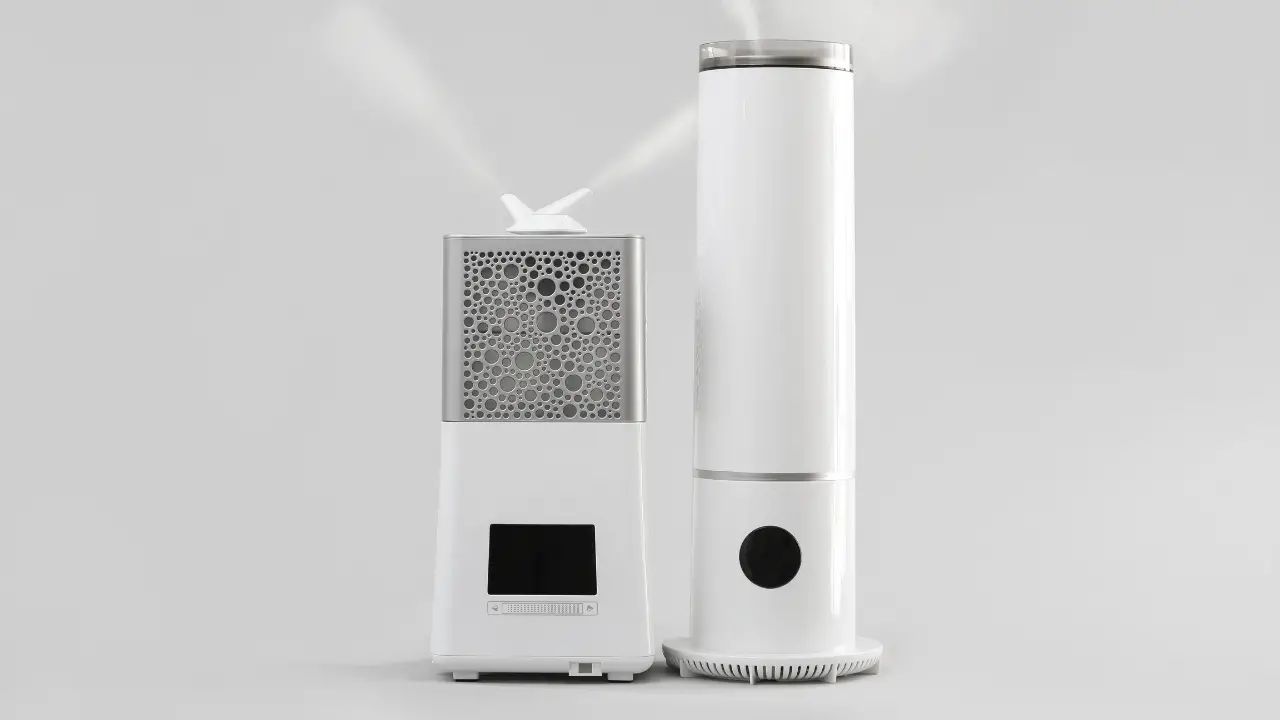






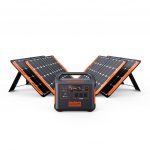

[…] can have a positive impact on respiratory health, sleep quality, and overall well-being. While air purifiers may not eliminate all sources of dust, they are an effective tool when used in conjunction with […]
[…] ensure optimal performance, it is recommended to replace the smoke detector batteries twice a year, along with the change of the clocks in the […]
[…] conclusion, air purifiers play a crucial role in dust mitigation by filtering out airborne particles and contaminants. They […]
[…] for individuals to keep track of their medications. These innovative systems aim to improve medication adherence and reduce medication errors, particularly during the vulnerable period after hospital […]